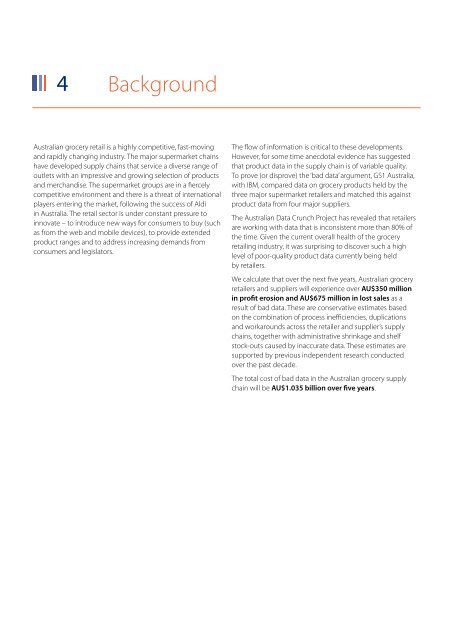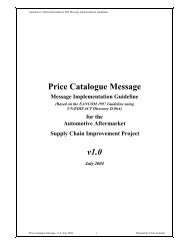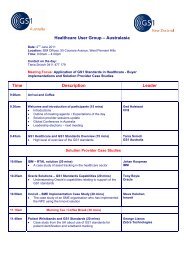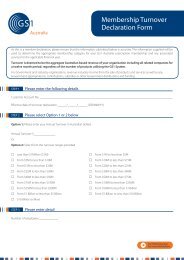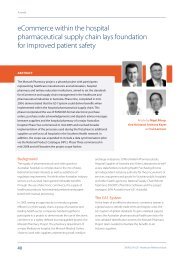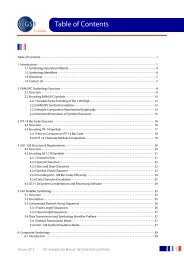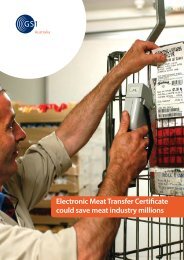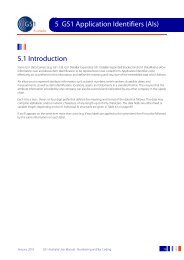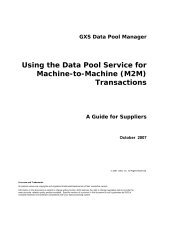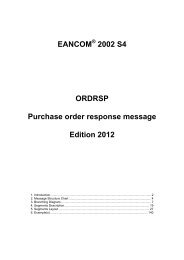Create successful ePaper yourself
Turn your PDF publications into a flip-book with our unique Google optimized e-Paper software.
4 Background<br />
<strong>Australia</strong>n grocery retail is a highly competitive, fast-moving<br />
and rapidly changing industry. The major supermarket chains<br />
have developed supply chains that service a diverse range of<br />
outlets with an impressive and growing selection of products<br />
and merchandise. The supermarket groups are in a fiercely<br />
competitive environment and there is a threat of international<br />
players entering the market, following the success of Aldi<br />
in <strong>Australia</strong>. The retail sector is under constant pressure to<br />
innovate – to introduce new ways for consumers to buy (such<br />
as from the web and mobile devices), to provide extended<br />
product ranges and to address increasing demands from<br />
consumers and legislators.<br />
The flow of information is critical to these developments.<br />
However, for some time anecdotal evidence has suggested<br />
that product data in the supply chain is of variable quality.<br />
To prove (or disprove) the ‘bad data’ argument, <strong>GS1</strong> <strong>Australia</strong>,<br />
with IBM, compared data on grocery products held by the<br />
three major supermarket retailers and matched this against<br />
product data from four major suppliers.<br />
The <strong>Australia</strong>n <strong>Data</strong> <strong>Crunch</strong> Project has revealed that retailers<br />
are working with data that is inconsistent more than 80% of<br />
the time. Given the current overall health of the grocery<br />
retailing industry, it was surprising to discover such a high<br />
level of poor-quality product data currently being held<br />
by retailers.<br />
We calculate that over the next five years, <strong>Australia</strong>n grocery<br />
retailers and suppliers will experience over AU$350 million<br />
in profit erosion and AU$675 million in lost sales as a<br />
result of bad data. These are conservative estimates based<br />
on the combination of process inefficiencies, duplications<br />
and workarounds across the retailer and supplier’s supply<br />
chains, together with administrative shrinkage and shelf<br />
stock-outs caused by inaccurate data. These estimates are<br />
supported by previous independent research conducted<br />
over the past decade.<br />
The total cost of bad data in the <strong>Australia</strong>n grocery supply<br />
chain will be AU$1.035 billion over five years.


